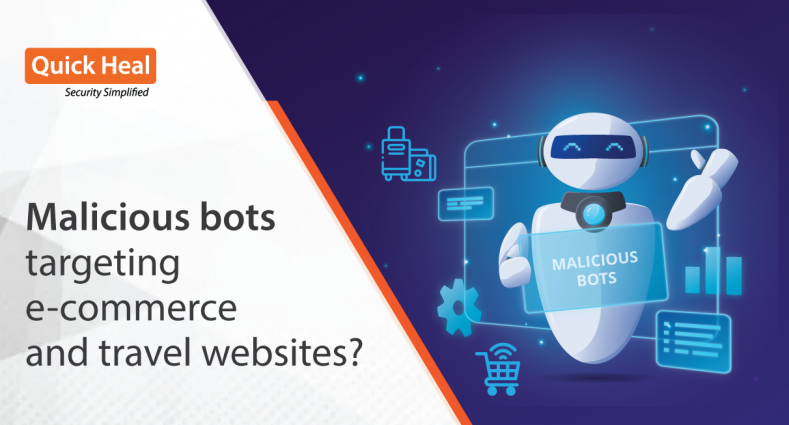Malicious bots targeting e-commerce and travel websites – A perceivable threat

Malicious bots are becoming a major threat on the Internet. A recent survey suggested that attacks on applications, APIs, and mobile sites are on the rise. The top four industries that were attacked by malicious bots last year were e-commerce, travel, media, and online marketplaces, according to a report.
Let us look at the conceivable impact of these bots on each sector, starting with the travel industry. Without a doubt, the ongoing coronavirus pandemic has had a shattering impact on the industry as a whole. Many huge airline companies have filed for bankruptcy with the few left remaining trying desperately to stay afloat. Whether it’s the hospitality sector or cruise ships, the travel industry is already in desperate need of a revival and hence at this stage, it just can’t afford any other crises.
Sophisticated bots can mirror human behavior
But these malicious bots can cause all sorts of trouble. On a general note, they can be extremely sophisticated and can imitate human behavior to take over user accounts by evading security measures. They can prevent online checkouts and take down other bots as well.
A common example of how these bots can cause financial damages to the travel sector is by holding inventory on travel websites, rendering them unavailable to real users. Reports suggest that 29 percent of all traffic to booking sections of travel sections is generated by malicious bots. Hotel rooms hence go unsold and airline bookings are not available, which leaves both the service provider and the customer at a disadvantage. These bots do not stop only at imitating user activity – they even take advantage of loyalty program rewards. Obviously, at such a critical juncture where the industry faces a global slowdown, it cannot afford to have such malicious bots create more damage.
E-commerce websites, beware!
Moving on to the e-commerce industry, reports suggest that there has been an increase of bot attacks on web applications, mobile applications, and APIs in this industry. They are evenly distributed across all portions of an e-commerce website, with a slight increase specifically on Login Pages.
To evade detection, they are extremely sophisticated and consist of various types. More than 50% of these malicious bots are advanced and distributed and can imitate user activity, enabling them to evade the website’s security controls. The other types of bots run task automation scripts, headless browsers, and are more basic.
However, these advanced bots can cause a lot of damage to e-commerce websites. From payment fraud on checkouts to the scraping of info on pages, inventory holdups, and cart abandonments, these bots can also take over accounts through brute force and credential stuffing attacks. Other types of attacks they cause are Distributed Denial of Service (DDoS) attacks against applications, API abuse, Carding, Web Scraping, and Denial of Inventory.
To protect against these malicious bots, users should ensure they have a stable and powerful security solution installed on their device, especially when browsing the Internet. Quick Heal Internet Security offers peace-of-mind while conducting banking, shopping, chatting, and other activities on the Internet through its state-of-the-art protection. A range of powerful features come together to ensure you can browse your favorite shopping and travel websites with the knowledge that you won’t be attacked by malicious bots.
No Comments, Be The First!